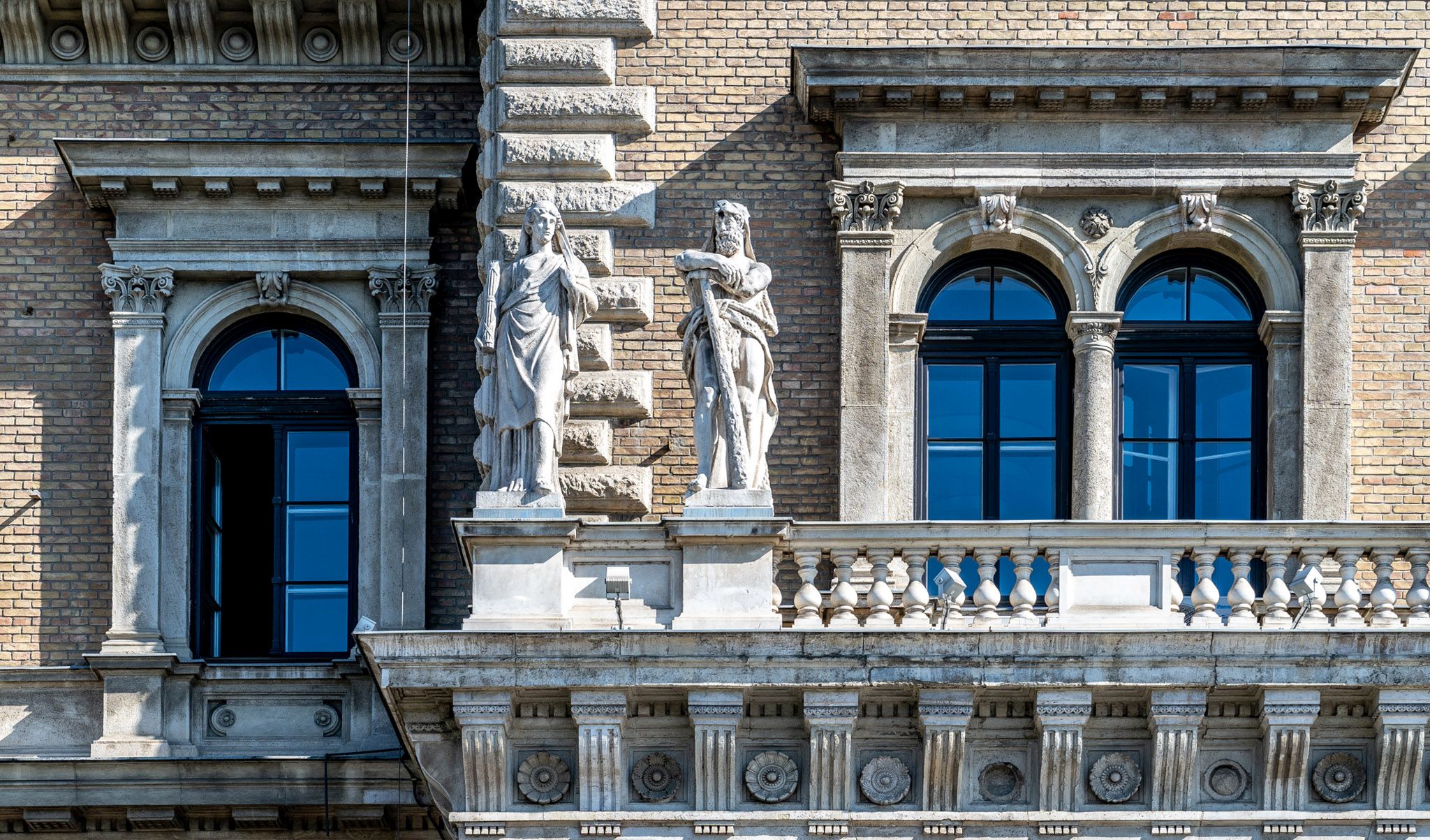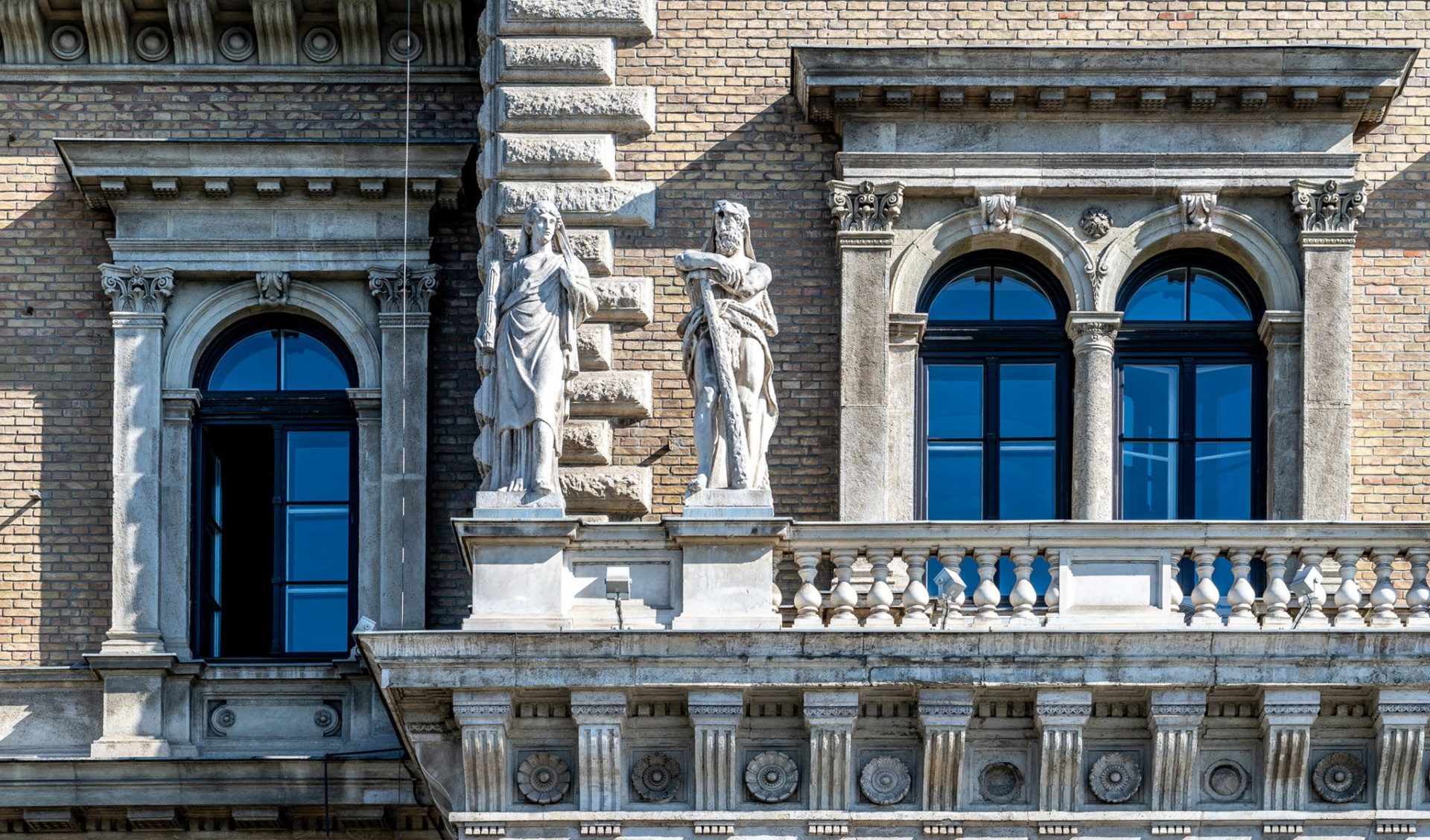Corvinus maintains stable operations and strengthens international relations
Project presentation of Anthony Radev and András LáncziSimilarly to the autumn semester, Corvinus University of Budapest will hold online information sessions in the spring on the rebranding of the institution. The objectives of the Renewal Projects and the steps planned for 2021 will be presented by the heads of the departments to the University staff on several occasions during March. Summaries of each presentation will be published on the website and in Corvinus News.

In the first session, President Anthony Radev and Rector András Lánczi spoke about where Corvinus is in the renewal process, the conditions for the University’s stability, international plans and the funding framework.
Nearly 200 university staff joined the Corvinus University of Budapest online management briefing on Thursday 3 March. In his introduction, President Anthony Radev said that the essence of the renewal project could be compared to the Olympic motto. The citius (meaning faster) refers to the need to be able to do everything the University has been successful in doing even faster, to innovate even more. The altius (higher) means that Corvinus staff should be able to perform their work at an even higher standard, and the fortius (stronger) means that the University should be able to achieve even greater impact in both education and research in all areas of economic and social life.
Aiming for stability and innovation
The President of Corvinus University of Budapest also stressed that the University’s primary concern is the development of its students, and through quality education it indirectly aims to create well-functioning Hungarian businesses and a more sustainable Hungarian society.
András Lánczi stressed the importance of maintaining stability and balance, as the University must continue to operate in a stable way, even in the face of the challenges posed by the epidemic and the renewal process. According to the Rector, Corvinus is making good progress with renewal, but it is still in the initial stages of the process. He expressed his appreciation to the Vice-Rectors, who are performing their jobs with great dedication and professionalism:
I have been working at the university for almost 30 years and as far as I can judge, we currently have one of the best leadership teams performing the work.
International outreach, China connection
The briefing was open to questions from University staff both before and during the briefing, so a number of topics were covered. With the opening of the Budapest campus of the Fudan University, often referred to in the press as the ‘Chinese super-university’, and the significant strengthening of Matthias Corvinus Collegium, the question was raised: what are the advantages and disadvantages for Corvinus? András Lánczi said that a strategic cooperation with Fudan University had already started before the news of the Budapest campus broke and that they would like to strengthen this further in the future. The Rector sees many opportunities for research and educational cooperation, as Hungary is the first location worldwide to open a campus of the university outside of China.
Regarding Matthias Corvinus Collegium, he stressed that there is no competition here, as it is not a university, but a college, and this will remain the case in the future. There is a link between the two institutions:
Talent search and talent development, but we have been working together with them in this respect already – stated the Rector.
He was also asked about the plans for international accreditations and the departure of Zita Paprika, the former Dean of this area. Anthony Radev said that international accreditations are an essential quality assurance for the University and are therefore treated as a strategic priority.
The President said that Zita Paprika had done a good job as Dean and that she had a lot to do with the results achieved in this area under the previous structure, but that during the organisational restructuring it had become clear that she did not want to work in the new structure and that the University management had to consider who should lead this area. It was also mentioned at the briefing that the international accreditation process is ongoing, and Vice-Rector Zoltán Szántó will give an update on this in his own project report (10 March).
Developing to accommodate more foreign lecturers and students
There were also questions about the earlier news that renowned foreign guest lecturers might be coming to the University. To this András Lánczi replied that they would like to go through the necessary process to ensure that it makes sense to hire guest lecturers, and that the intellectual life of the University, students and lecturers benefit from this.
The Rector said that the first step was to create an intellectually exciting research community that would welcome renowned foreign academics to join, and that this would require the establishment of clear and unique research directions that would make the University part of the academic discourse. Attracting foreign academics is also the aim of the CIAS tender, which Corvinus is running to attract young researchers at the start of their careers. The programme has already produced concrete results, which will be presented by Vice-Rector Zoltán Szántó in his own project report on 10 March.
Questions about increasing the number of foreign students were also asked, and the answer was similar: an exciting intellectual and research environment was cited as a prerequisite. András Lánczi also stressed the importance of marketing, saying that communication channels are also crucial to attracting students from neighbouring countries to Corvinus. Currently, the proportion of foreign students at the University is 13 per cent, and the strategic goal is to increase this to 20-25 per cent.
There were also questions about the financing of the University: whether there are plans to sell the available MOL and Richter shares, or to diversify the portfolio. In response, Rector András Lánczi, a member of the Board of Trustees of the Maecenas Universitatis Corvini Foundation, which maintains the University, said that he considered such a move unthinkable at the moment.
Asked whether and for what purpose the University was applying for the tender for the reform of the infrastructure, organisation and development of higher education institutions, Anthony Radev said: “Yes, for structural, educational and research purposes”.
The March 3 project presentation recording can be viewed here.
